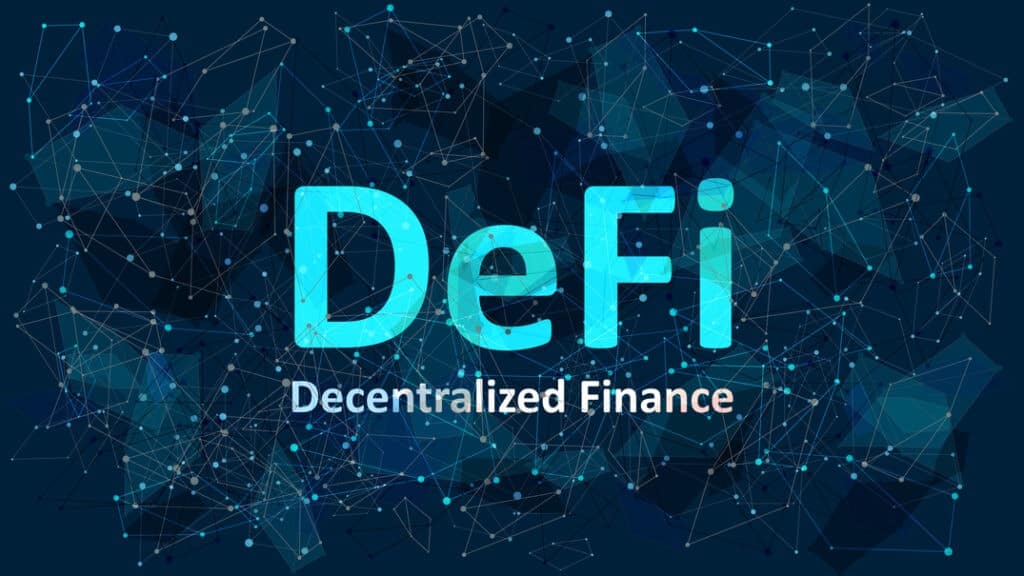Is Decentralized Finance the Future? 5 Things to Know

Decentralized Finance (DeFi)’s primary concept is to take the sophisticated financial services and products that are often provided by legacy financial institutions, codify their rules and processes, and then convert them into self-executing code, all without the need for a central authority.
In simple words, these are automated, self-executing products and services in which the user or customer engages with the programme directly, free from any intervention by middlemen like banks, insurance firms, agents, etc. A 24/7, rapid service at very little or no cost.
DeFi apps have the potential to democratise the financial industry since they are decentralised, peer-to-peer systems that are accessible to anybody, everywhere.
Is Decentralized Finance (DeFi) the Future?
Decentralized Finance is set to challenge the dominance of the traditional finance industry as it offers many key advantages over traditional finance.
1. Better Accessibility
Since Decentralized Finance (DeFi) is a permissionless ecosystem, it enables anyone with an internet connection to participate in financial transactions, regardless of their location or credit history.
As the DeFi ecosystem matures and becomes mainstream, it can increase the financial inclusion of marginalised and unbanked communities.
2. Better Transparency
Decentralized Finance (DeFi) offers greater transparency over traditional financial institutions as transactions are recorded on a transparent, public ledger.
As a result of everyone in the network being able to understand the nature of transactions, there is a greater degree of trust among users as well as higher accountability from financial institutions.
Also Read: Top DeFi Trends To Look Forward To In 2023
3. Better Security
Since Decentralized Finance (DeFi) leverages blockchain technology, it is secure from fraud, tampering, and censorship. In a blockchain, a record that can’t be changed and is encrypted end-to-end, which helps prevent fraud and unauthorised activity.
4. Automation
Decentralized Finance (DeFi) can automate many processes that are generally carried out in the traditional finance and payment processing landscape, helping to reduce labour and infrastructure costs.
With Decentralized Finance (DeFi), banking and financial operations will be mostly automated, controlled by codes and algorithms, and without any human involvement at any point in the process, like a self-driving bank.
DeFi will make every product or service self-driving where machines/codes can communicate with one another.
5. Less Centralization
The core motivation of the Decentralized Finance (DeFi) is to get rid of centralised entities, as they can take any decision (good or bad) or override any decision in the traditional system.
With DeFi, there is no governing body telling you when and whether you can transact or putting any restrictions on you. It is a user-consensus system that rewards good conduct and penalises bad behaviour.
Also Read: Top 5 Certifications To Get Into Web 3.0 Industry
Recent Posts
Crypto Debit Card vs Traditional Debit Card: Key Differences
Traditional debit cards have been on the scene for decades now and have become one…
Custodial vs Non-Custodial Crypto Cards Explained
Highlights Crypto Cards enable seamless payments at the point of sale using cryptocurrencies. Crypto cards…
- Education
Which Crypto Exchanges Reduced Fees in 2025? (Tracker)
Crypto exchange fees matter, especially for active traders. In 2025, the competition between major exchanges…
How to Verify Presale Smart Contracts Before Investing
Cryptocurrency presales are a good way to get into promising crypto projects at an early…
UniSwap Airdrop: A Case Study
If you've been around Web3 for a while, you’d agree that the Uniswap airdrop was…
- Education
Crypto Maker vs Taker Fees Explained: A Simple Guide
If you’ve been trading crypto for a bit, you already know fees can be confusing,…